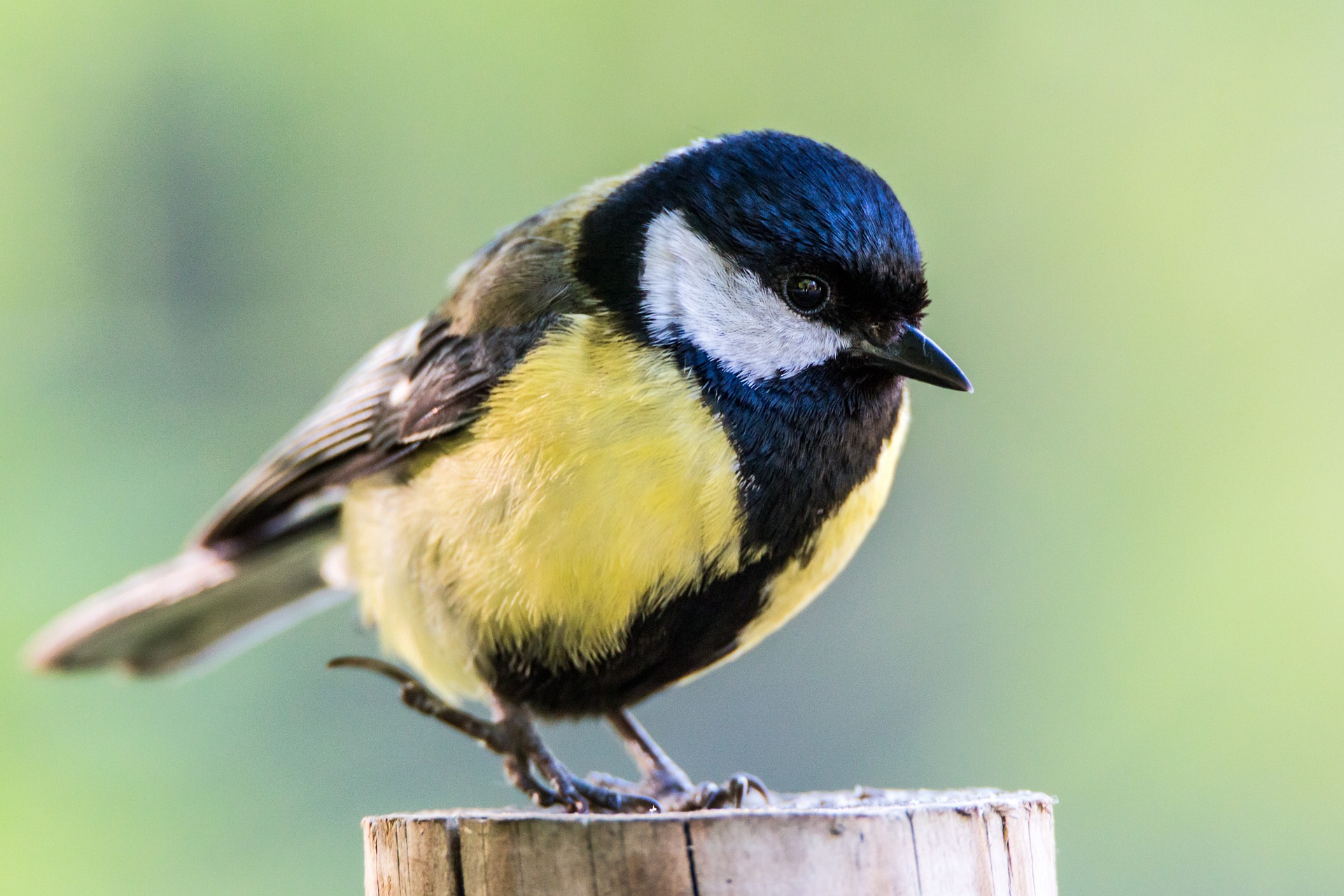Remember Groot and Rocket from Guardians of the Galaxy? If this powerful tree and reckless raccoon guarded your garden, no pest would stand a chance. Fortunately, nature does provide real-life guardians that protect your green grounds from pesky pests.
As such, refrain from buying chemical bug repellents. Keeping pests out of your garden does not always have to involve insecticides. There are non-toxic and environmentally friendly alternatives. Also, remember that balance in the ecosystem is essential.
Here are several insects, birds and plants that can help in preventing pests from taking over your garden:
Beneficial Insects Against Pests
Beneficial insects are a group of insects that can reduce pest populations or even wipe them out entirely. They are important in pest management in horticulture, agriculture, and viticulture. Some of them include:
Praying Mantises
Praying mantises are generalist predators that feed on various garden pests, such as caterpillars, beetles, aphids, and flies. They are also extremely skilled hunters with great vision and strong forelegs, perfect for catching and grasping prey.
To incorporate praying mantises into your garden's natural ecosystem, create a suitable habitat by having abundant vegetation with various plants, shrubs, and flowers. These give them appropriate spots to hunt from. Dense, tall grasses are also appealing to them.
During warmer seasons, give them a water source with shallow dishes or trays filled with clean water. It's vital also to keep your garden organized and neat to attract beneficial insects like praying mantises.
Ground Beetles
Ground beetles are nocturnal predators that feed on garden pests such as slugs, snails, caterpillars, cutworms, aphids, and other soft-bodied insects.
They are highly useful for removing nocturnal pests as they vigorously search for prey in the soil, leaf litter, plant debris, and other common hiding areas.
Both adult and larvae ground beetles can consume prey that weighs as much as their body weight each day, making them extremely voracious predators. To attract more ground beetles into your garden, you need to build a suitable habitat by providing dense vegetation like perennial plants, shrubs, and ground cover.
Because ground beetles are attracted to moist environments, another way to increase their number is by applying mulch and organic matter to the soil to retain moisture. Adding native plants and providing water resources can also help attract ground beetles to settle in your garden.
Lady Beetles
Lady Beetles are among the most common garden predators. They typically feed on pests such as aphids, spider mites, whiteflies, mealybugs, and scale insects.
Aphids are among the most common garden pests that damage plants by sucking on their leaves and stems. Lady beetles are known for devouring large numbers of aphids. A single lady beetle can consume dozens of aphids in a day, keeping the pest population low.
To effectively introduce lady beetles into your garden, you need to obtain native lady beetle species that are acclimated to your region's climate. You can attract them naturally by creating an environment filled with nectar-rich flowers, such as daisies, marigolds, and asters.
You can also purchase lady beetles or their larvae. If you purchase lady beetles, it's best to release them during the evening or early morning as it encourages them to stay in your garden due to the abundance of moisture and potential food sources.
Garden Birds for Pest Control
Aside from beneficial bugs, a number of birds can help control pests in your garden. Backyard birds usually focus on feeding their hatchlings with freshly caught bugs, reducing the pest population. As pest infestations usually peak in the late spring and early summer, backyard birds can help gardeners with this problem.
Some beneficial bird species you can lure into your garden are:
Bluebirds
Bluebirds are known as insectivores because they feed on many insects such as ants, bees, beetles, caterpillars, crickets, earthworms, grasshoppers, spiders, and snails.
Bluebirds can also control the larvae population of most insects, including Japanese beetles and cucumber beetles.
To increase the number of bluebirds visiting your garden, provide suitable nesting areas by building bluebird houses or nest boxes. Make sure to position these nest boxes in open and easy-to-spot areas, away from dense vegetation.
These bluebirds can also appreciate a water source near your garden to help them hydrate after a day of hunting pests.
Chickadees
Chickadees are also beneficial allies in garden pest management. They eat grubs, tent caterpillars, aphids, leafhoppers, scale insects, leaf miners, and various types of beetles. They also feed on sawfly larvae and eggs found on plants.
Chickadees provide pest control throughout different seasons. They are extremely helpful during spring and summertime when pest populations are high.
To attract Chickadees in your garden, place bird feeders with high-quality seeds and nuts. Incorporate native plants that produce seeds, berries, and nectar, which attract Chickadees' common prey.
Nuthatches
Nuthatches are adept at searching for pests through tree bark crevices and typically feed on ants, beetles, caterpillars, moth eggs, larvae and other small invertebrates.
In the winter, nuthatches eat seeds, berries, and their insect diet to keep them full. You can also fill your bird feeders with black oil sunflower seeds and suet because nuthatches love to snack on them.
Nuthatches like woodland areas, so having a mix of trees, shrubs, and understory vegetation in your garden will attract them too.
Plants that Deter Garden Pests
Aside from beneficial bugs and birds, did you know that there are also plants that can help deter pests from your garden? Some plants can repel insects due to their smell.
Consider planting these:
Basil Plant
Basil is known as a natural insecticide. Its strong aroma can mask the smells of other plants, making it difficult for pests to locate their target vegetation. This helps reduce infestation.
It contains four volatile compounds – estragole, citronellal, limonene, and nerolidol that can repel mosquitoes and flea beetles. Unlike other herbs, basil plants don't need to be crushed to be effective, as their smell is pungent enough for pests.
Additionally, basil flowers can attract beneficial insects such as bees, which are known to pollinate plants.
Lemongrass
You might have encountered the word "citronella" before, as they’re commonly used in conventional mosquito repellents. Well, this natural oil is found in lemongrass.
Aside from mosquitoes, lemongrass can deter aphids, ants, and whiteflies.
When lemongrass is planted in your garden, its strong scent protects neighboring plants from potential insect infestations.
Mint
The leaves found in mint contain aromatic properties and essential oils like menthol and pulegone, which can repel mosquitoes, aphids, cabbage worms, ants, fleas, moths, and spider mites.
When planting mint, it's best to put them inside pots rather than on the ground as it spreads aggressively.
In Summary
Consider adding these natural pest repellents to your garden. Not only are they absolutely eco-friendly, but they also add beauty and diversity of color, scents and sounds. At the very least, plant some basil, lemongrass or mint.
However, if you think the pest infestation in your garden requires a more serious approach, contact pest control experts in your area. They are trained to eliminate pests effectively. Since they know the region’s ecological landscape, they can also help you better manage your garden.
Author
 Luqman Butter
Luqman Butter
Luqman has been a pest control technician for over 20 years. He is passionate about solving peoples pest and wildlife control problems through innovative, eco friendly and humane methods. Luqman currently works for Pestend Pest Control. He believes that pest control is a science and feels that his function in his community is very important since he helps people live in peace without causing unnecessary harm to animals..
